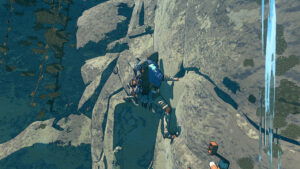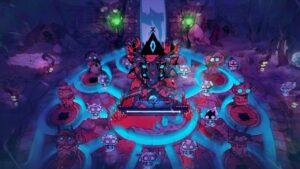If I’m being honest, I was eager to jump into KARMA: The Dark World primarily because it immediately caught my attention with a horror-esque vibe. I’m not quite sure why March seemed to be full of horror releases when October is usually starved of them, but for my favourite genre in gaming, I’ll take what I can get.
However, KARMA: The Dark World quickly lost its lustre as it slowly but surely fell prey to some of the usual sins of horror games. Frankly, I don’t think it’s even fair to call it a horror game—but we’ll get into that in a bit. As its charm slipped away, it became a game more defined by what it could have been than what it actually is.
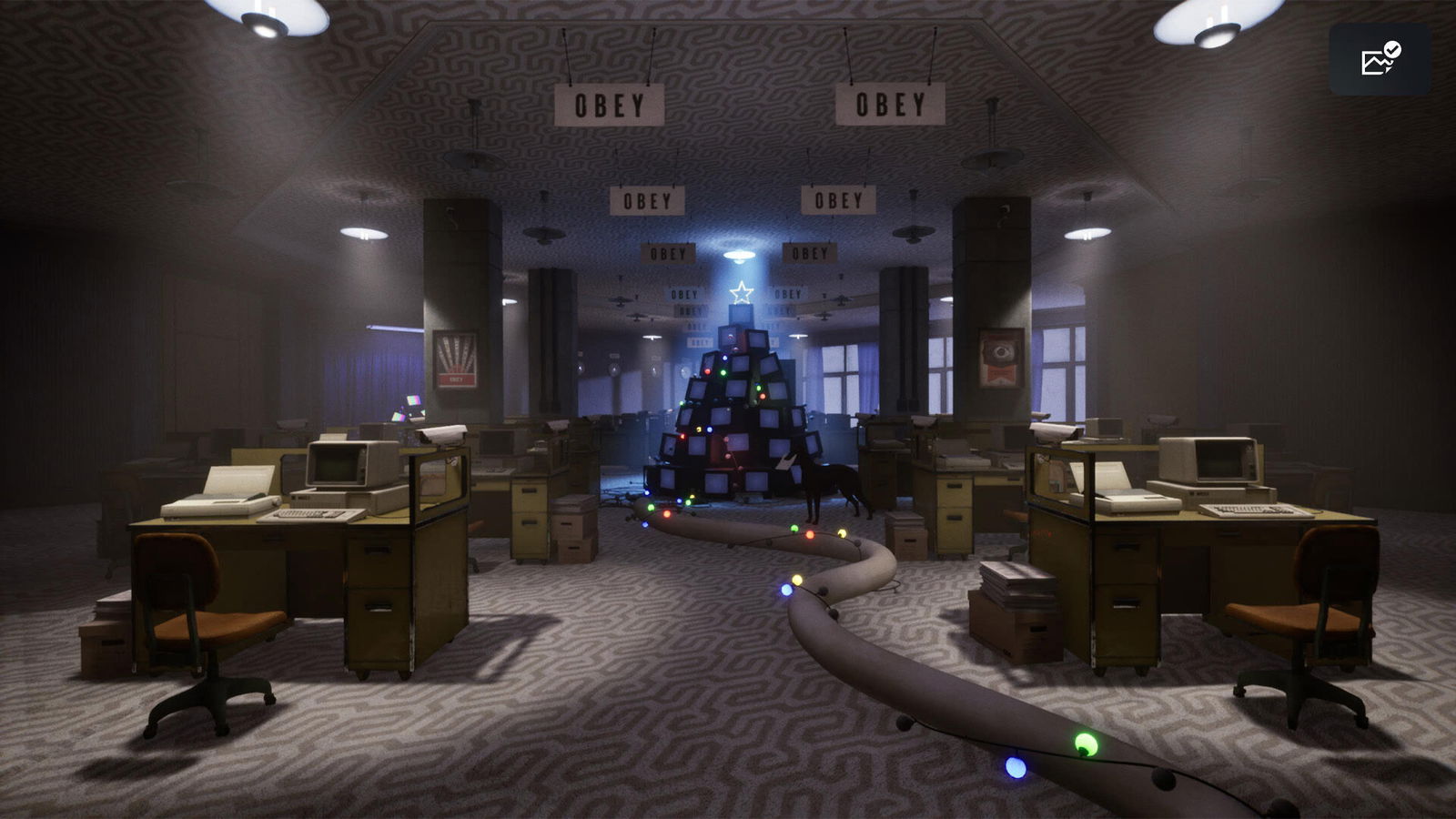
Since KARMA: The Dark World is meant to be somewhat of a mystery, I won’t delve too deeply into the plot to avoid spoilers. Players take on the role of Daniel McGovern, an agent with the massive Leviathan Corporation’s Thought Bureau. What begins as a fairly routine case of theft quickly spirals out of control into something much darker and more sinister, causing Daniel to question everything he thought he knew.
“Visually, KARMA: The Dark World is absolutely stunning.”
That’s at least the gist of it. And honestly, the story isn’t that bad. It’s genuinely intriguing and pretty engaging for the most part. However, much like other games of this kind, my problem isn’t so much with the story itself but how it’s told. For starters, it begins in what seems like a simulation with a character—who may or may not be Daniel—having completely lost his memories. Even for a psychological thriller with horror elements, I’m personally getting really tired of amnesiac characters as a device for an unreliable narrative.
Secondly, much like many of the attempts at “horror” games I’ve played, the game is just a little too on the nose with its imagery and theming to the point it becomes “Oops, All Allegory.” It wasn’t a great start when the world is being controlled by a massive, sinister corporation and the best name they came up with for it was “Leviathan,” but when they’re also so obviously and cartoonishly evil, it loses a lot of the possible intrigue it could have had.
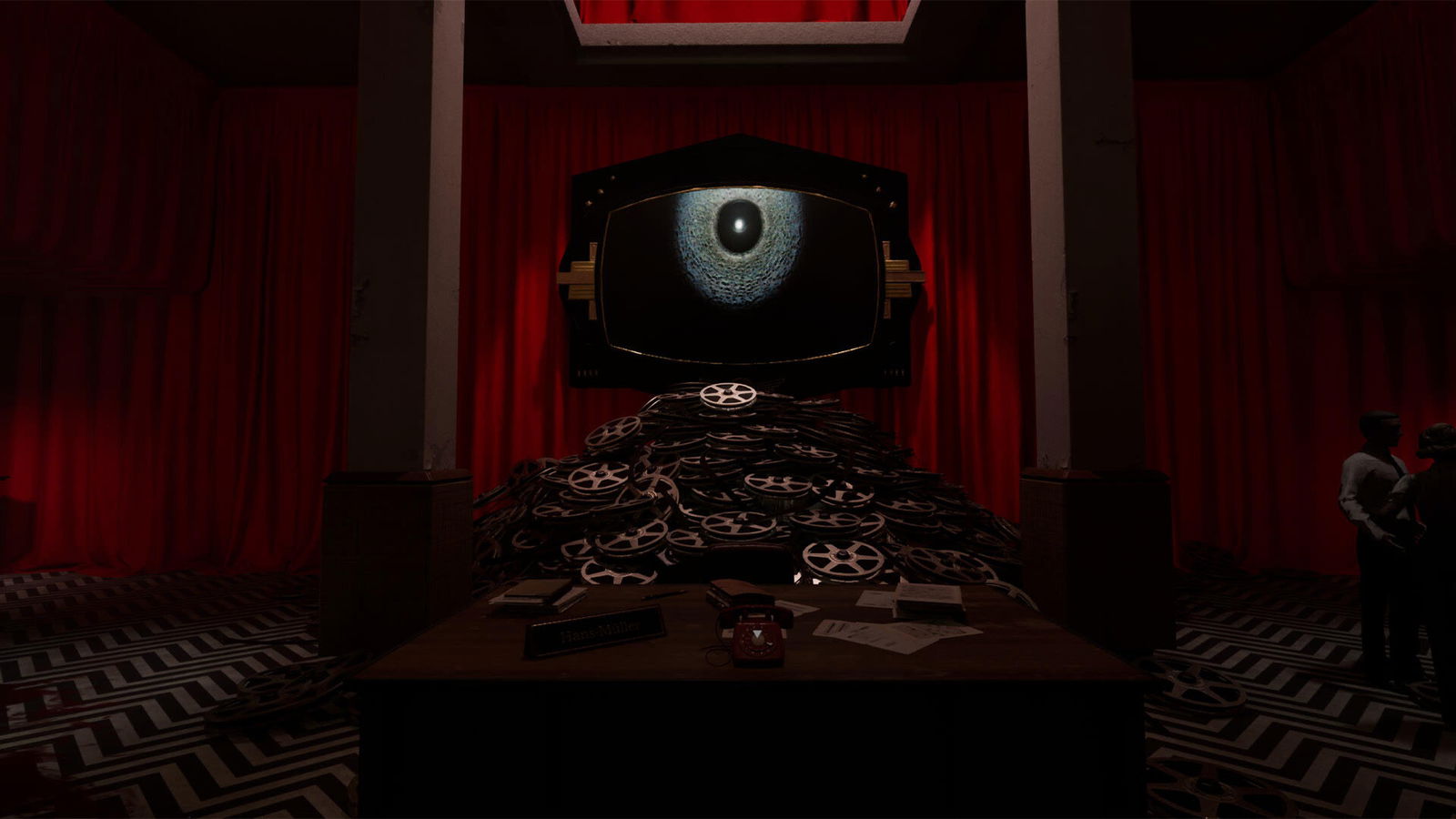
One moment that genuinely made me laugh was a sign within the lobby of the Thought Bureau pointing to the various departments, which naturally included the Department of Propaganda, the Re-Education Office, and, of course, the Department of Historical Revisionism. It was at this moment that it truly felt like you could have just called the Leviathan Corporation “The Baddies.”
You’re playing as a character working within this corporation—wouldn’t it have been more interesting if the Leviathan Corp. initially seemed good, or perhaps a bit ruthless but ultimately for the benefit of humanity, and then you start to see the illusion break down? It would remove the need for amnesia as a narrative device while still aligning with the psychological thriller themes and style KARMA: The Dark World aims to achieve.
“The environments are beautifully rendered and richly detailed, and the use of colour and lighting is incredibly striking.”
This issue extends to the more esoteric portions of the game as well. Whether you’re wandering through the Red Room—pulled straight out of Twin Peaks—or being forced through the horrors of a mundane office, these moments could be incredibly effective if they didn’t drag on for just a bit too long and beat you over the head with their symbolism. More than once, I found myself repeating a looped room and crying to the heavens, “I GET IT! CAN YOU PLEASE LET ME CONTINUE!”
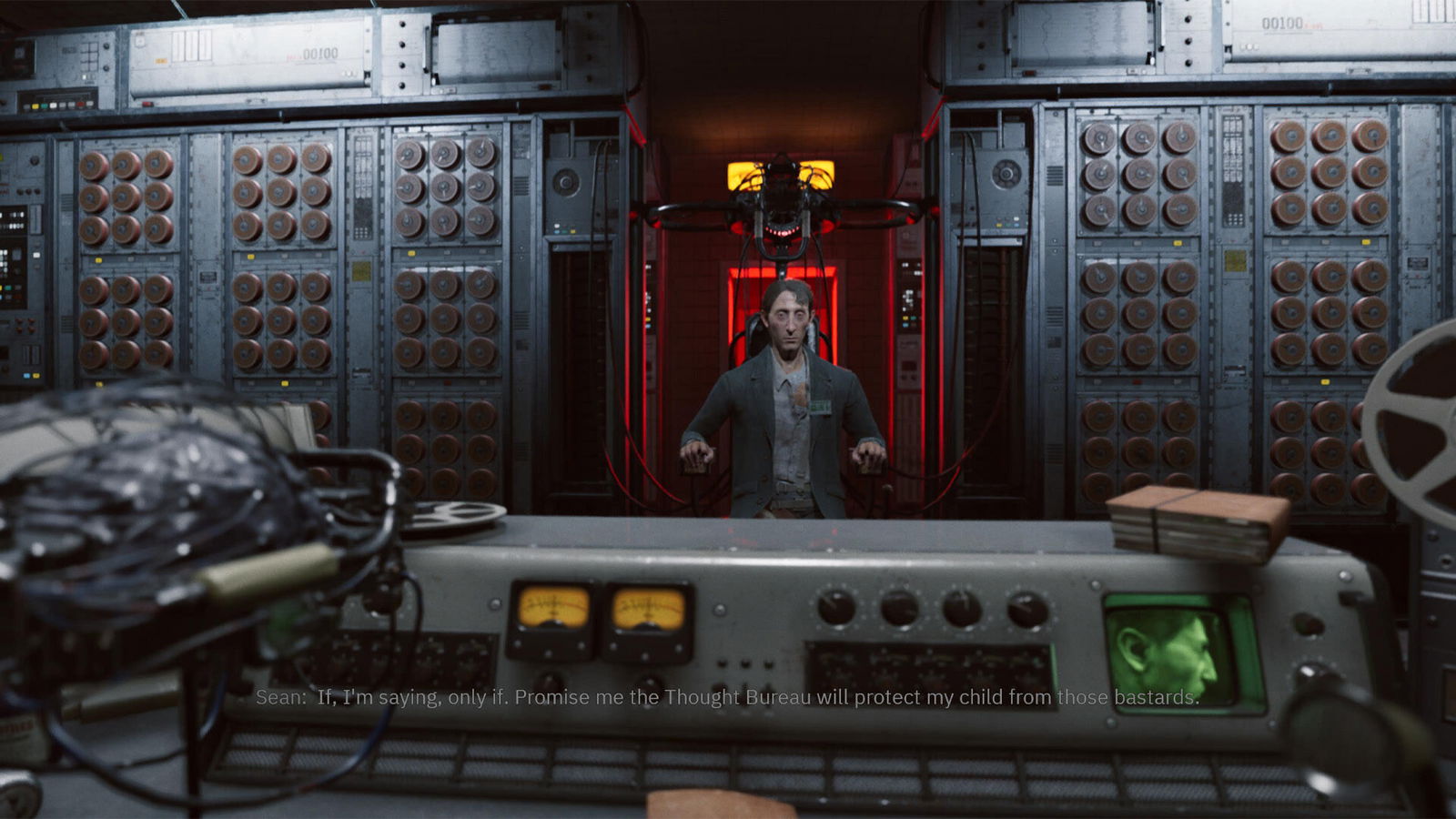
Also, I really think this needs to be said: STOP PUTTING LINEAR CHASE SEQUENCES IN YOUR PSYCHOLOGICAL HORROR GAMES. Too many “psychological horror” games recently have done this, and it’s never scary—it never adds anything to the game except annoyance. This is especially true if you throw in surprise brick walls for characters to get caught on, forcing them to restart the chase from the beginning.
Your game is trying to affect people on a different wavelength than your average blood-and-guts spookfest. If you’re not confident enough that the themes and tone will affect players, a chase sequence definitely isn’t going to suddenly do that. I’m just saying, there’s a good reason Silent Hill 4: The Room didn’t have pointless linear chase sequences.
It’s a shame because, in its attempt to be a psychological thriller, KARMA: The Dark World ends up feeling like a fairly standard walking simulator. There’s such a solid foundation here that could have made it a really interesting puzzle game—something akin to L.A. Noire or Alan Wake. That’s not to say the game doesn’t have puzzles, but I don’t really consider being given a question and then a straight hallway to the answer much of a puzzle.
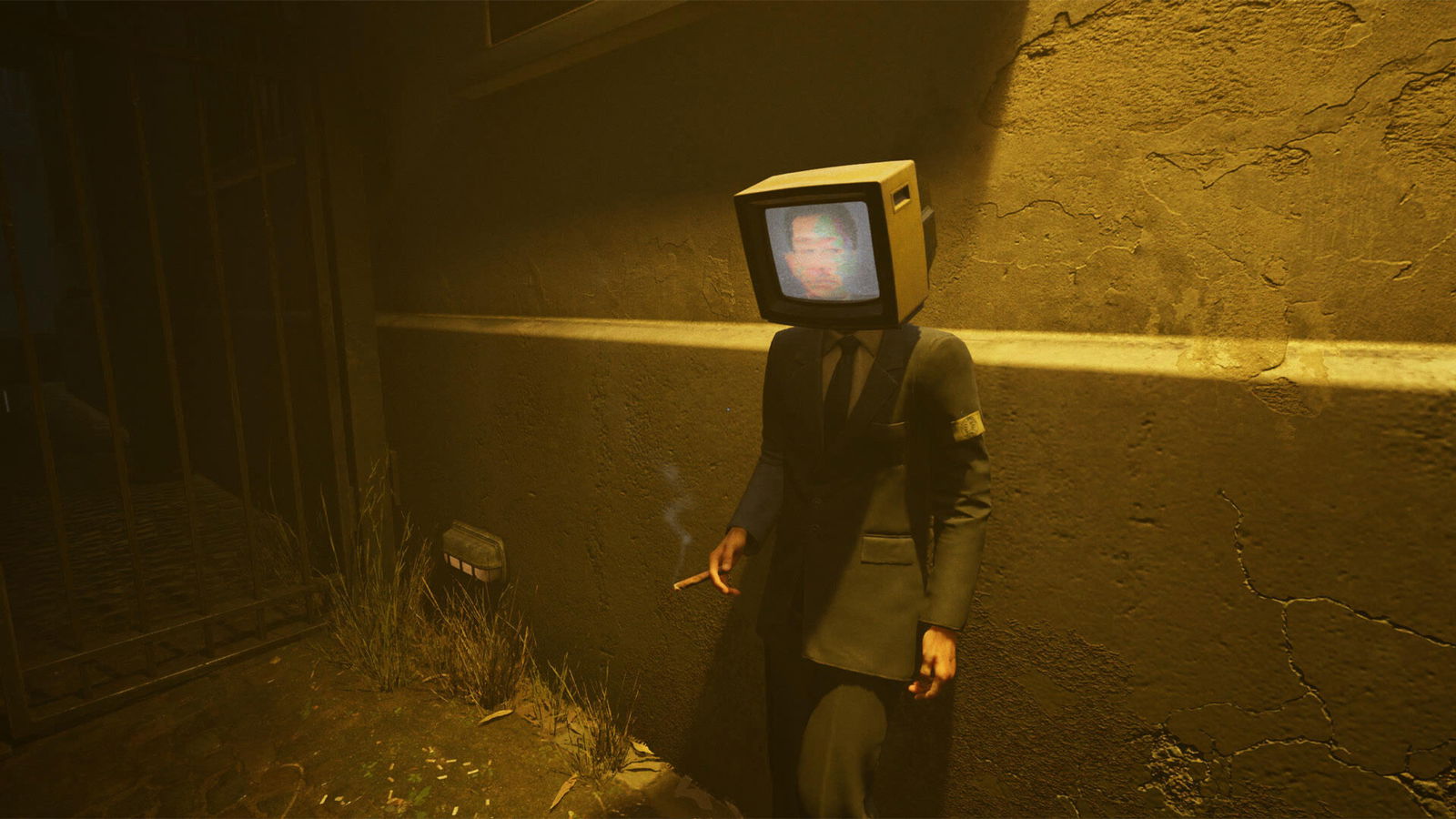
The player could have been more actively involved in uncovering the dark secrets of this massive corporation while fighting their way out of bizarre dreamscapes rather than just being guided through the world and essentially being told, “See? Aren’t we clever?”
“In its attempt to be a psychological thriller, KARMA: The Dark World ends up feeling like a fairly standard walking simulator.”
Visually, KARMA: The Dark World is absolutely stunning. The environments are beautifully rendered and richly detailed, and the use of colour and lighting is incredibly striking—despite a few issues with the HDR that should be fixed with a day-one patch. While I did criticize some elements for being a bit too obvious, there’s a lot to appreciate about the way some of the more high-concept ideas are presented. Twitching humans planted in dirt, characters with TVs for heads, and threatening mechanical eyes staring at you all carry a sense of esoteric discomfort that, had they been a bit more subtle, would have been even more effective than they already are.
The audio is equally well done, with a solid mix of ambiance, tense and sombre music, and some decent voice acting to set the tone of the world. However, for some reason, KARMA: The Dark World also does that thing that Lost Records: Bloom and Rage did, where character dialogue overlaps in a way that I think is meant to sound naturalistic but just ends up sounding like bad mixing.

KARMA: The Dark World is a decent game, but the more I played it, the more I wished it was something else. It has an interesting story, and all the pieces are there for a truly good experience, but it never quite coalesces into something I really wanted to return to. So many times, I found myself thinking, “This could have been exactly what We Happy Few promised to be,” but just like that game—and the evil corporations within them—it was all an illusion.



